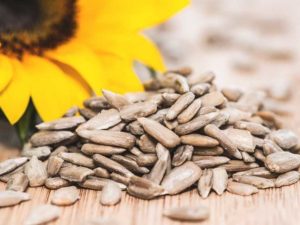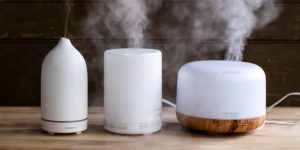How To Boost Your Immune System
If your immune system is low and your looking to boost it, this post is all about 5 steps to avoid a cold or the flu. Learn how you can strengthen your immune system easily and stay healthy.

Introduction
Your immune system is your first line of defense against intruders such as bacteria and viruses, which can make you very sick. It is critical to stay healthy throughout the year and to take advantage of any opportunities to strengthen your immune system. To do so, here are 5 steps to help you avoid being sick with a cold or flu if your immune system is low.
Step 1: Make Sure To Eat Well
Eating well entails getting plenty of fruits and vegetables into your diet as well as staying hydrated. Enough so that you get a lot of nutrients and antioxidants to help your immune system. You’ll want to make sure you’re getting enough selenium, vitamin E, and vitamin C.
Selenium can be found in nuts (such as Brazil nuts) and fish. Vitamin E can be found in spinach, seeds, and peanuts. Many vegetables, including broccoli, spinach, cauliflower, and sweet potatoes, contain vitamin C. Water, on the other hand, will help your body flush out toxins such as bacteria that could cause illness.
Here are some grocery list suggestions:
Fish
Tuna, in particular is an excellent source of selenium. One ounce of tuna contains approximately 30 mcg of selenium. Selenium is a powerful antioxidant and one of the minerals we need for good health and immunity. For an adult, the recommended daily intake of selenium is 55 micrograms.

Other fish and seafood typically contain between 12 and 20 micrograms of selenium per ounce. Salmon is also an excellent immune-boosting food. It is high in “healthy fat” (omega-3), which is known to boost the immune system and lower the risk of heart disease.
Lentils
Lentils are an excellent substitute for fish if you follow a vegan or vegetarian diet. One cup of lentils contains approximately 6 MCG of selenium. They’re also high in immune-boosting nutrients, fiber, and protein.
Garlic
Garlic is another vegetable that has an immune-boosting effect similar to zinc. According to some studies, garlic can help keep a cold at bay. Some studies even show that people who had cancer were able to boost their immune systems by increasing their garlic intake.
Blueberries
Blueberries and berries in general are high in antioxidants. Blueberries rank first among fruits and vegetables in terms of antioxidant content. Not only has research demonstrated the power of blueberries on our immune system, but they have also been linked to a lower risk of stomach fat, cholesterol, heart disease and cancer.
Sunflower Seeds
Sunflower seeds have a high vitamin E content. One ounce contains 76% of your daily requirement, or 15 milligrams. Vitamin E, like selenium, is a powerful antioxidant that aids in the fight against infection by boosting the immune system.

A diet high in vitamin E and C, zinc and selenium will most likely help you boost your immunity. While it is beneficial to consume as many healing foods as possible, it is not always possible to provide our bodies with all of the nutrients and antioxidants that they require to stay healthy. That’s when supplements come in handy.
Step 2: Maintain Good Hygiene
The most important way to avoid getting the flu or a cold is to practice good hygiene. That is, limit your exposure to viruses and bacteria as much as possible. The virus’s goal is to find a host, which is a cell in the body.
Our innate immune system, which includes our skin, is our body’s first responder. Our skin, as the first line of defense, acts as a surface barrier to prevent viruses and bacteria from entering our bodies.
That is why, during flu season, there are signs urging people to wash their hands everywhere. Washing your hands kills the antigen before it causes harm to the body. Before every meal, after going to the bathroom, or after touching someone else (such as a handshake) or something in public, you should wash your hands. It’s also important to be aware of when you reach for your face, because the virus is more likely to enter through your mouth.
Step 3: Keep Hydrated
Drinking plenty of fluids will assist your body in flushing out toxins that may cause illness. 75% of people are consistently dehydrated, which is probably one of the main reasons why most of us get sick or don’t recover quickly from illnesses. Water is essential for flushing toxins from our bodies. We can’t get rid of toxins fast enough if we don’t have enough water.
Toxins can exist as viruses or bacteria. Drinking plenty of water can help you fight infection. You can start increasing your water consumption by carrying a refillable bottle with you at all times. It is suggested that you drink 2 to 3 liters of water per day.
Step 4: Establish A Bedtime Routine
You must get enough sleep in order for your immune system to function properly. Because sleep is so important to our immune system, it is recommended that we get seven to eight hours of sleep per night. That amount of time is sufficient to regenerate the body.

Getting enough sleep improves the ability of the body’s white cells to fight illnesses and reduces symptoms associated with the common cold and flu. To get a good night’s sleep, try to establish a bedtime routine that allows you to get your eight hours of sleep. Here are a few suggestions to help you sleep better.
Create A Routine
A routine has been shown to trick your body into falling asleep at a specific time. Attempt to observe yourself; is there ever a time when you are tired? If this is the case, make sure you get to bed before that time. Make a schedule that allows you to finish everything before that time and go to bed.
You can also set an alarm to remind you when it’s time to get ready for bed. That way, you’re less likely to forget what time it is and are more likely to stick to a routine. A bedtime ritual is a great addition to your routine. A good bedtime ritual allows you to unwind, disconnect from the stresses of the day, and gradually signal to your body that it is time to sleep.
Create a Relaxing Environment
It might be time to take a look at your bedroom and see if there are any ways to improve the environment for a good night’s sleep. Don’t underestimate the power of fresh linen and the comfort of your bed and pillow. If you are uncomfortable, you will most likely have difficulty falling or staying asleep.
The temperature of the room and the level of noise in the surrounding area are also factors in comfort. Sleep with a fan or a white noise machine on. Having a constant sound in the room may help you sleep better. If you like essential oils, try putting a drop of lavender on your pillow to help your brain relax.
Stay Away From This
Avoid consuming alcohol, cigarettes, caffeine, or eating a large meal 2–3 hours before going to bed.
Consult an Expert
If you’ve tried all of these suggestions and are still having trouble sleeping, you should talk to your doctor or a sleep specialist. They can also offer you other solutions to improve your sleeping situation.
Step 5: Manage Your Stress
Stress is a major contributor to illness. One out of every three people reports feeling extremely stressed in their daily lives, which puts us at risk of activating potentially harmful viruses in our system. When we are stressed, our bodies’ ability to fight antigens with antibodies is harmed.
Our immune system can suffer as a result of daily stress and stressful situations. The more stress reduction activities you incorporate into your daily routine, the stronger your immune system will become. Here are two tips to help you reduce stress and boost your immune system against viruses.
Change Your Mindset
You can alter your mindset by remaining positive and living in the present moment. According to research from around the world, positivism is a trait that improves your health and lowers your chances of getting sick from a virus. Not only is the immune system of optimistic people stronger, but they also appear to be healthier in general.
Whatever happens around you, you always have a choice in how you react to it. You either see it through a half-full or half-empty lens. Focusing on gratitude is an excellent way to begin improving your attitude. Finding things to be grateful for will assist you in seeing the best in everything. You can do so by keeping a journal of the gratitude you want to express on a daily basis.
Practice Mindfulness
By incorporating a mindfulness practice into your life, you can adopt a new perspective on life and manage your tensions. The ability to stay in the present moment and stop worrying about the past or the future is referred to as mindfulness. Less mental stress means less physical stress, which strengthens your immune system. Try mindfulness breathing by taking three deep breaths.
- Breathing in through the nose
- Breathing out through the mouth
- Repeat two more times
Repeat this mindfulness breathing exercise a few times throughout the day for a total of 5 mindfulness breathing exercises.
Use Aromas To Your Advantage
Aromas derived from essential oils can help you boost your immune system while also instilling a sense of calm in the environment. Lavender is one of the most powerful essential oils. Lavender is a potent oil that contains antioxidants that help the body protect its cells from toxins.

You can use it in a Aroma Oil Diffuser to help kill allergens while also adding a fresh scent to your home and assisting you in relaxing. To improve your sleep, place a drop of lavender oil on your pillow. Adding two to four drops of lavender oil to your bathwater is another excellent way to use it. Lavender oil will assist you in eliminating toxins from your body while providing a deep sense of relaxation.
Anyone can work on strengthening their immune system and improving their chances of remaining healthy during flu season or when confronted with bacteria. As you have learned from this five step guide, we have a better chance of avoiding illness if we eat certain foods and reduce stress in our lives. You can also improve your sleep, which will aid the body in fighting infection.
When you are healthier, you have more energy to do more of the things you enjoy, as you will probably notice if you follow those five steps. Keeping your body healthy has numerous advantages!
If possible, try to maintain this lifestyle throughout the year, as it will aid in the development of a resilient immune system capable of withstanding antigens. Not only does it increase your chances of staying healthy, but it also helps you recover faster if you do become ill.
Immune System Is Low Conclusion
Thank you for taking time to read my Immune System Is Low article. I hope you enjoyed it and got plenty of good information out of it. It is my wish that you enjoy a happy and healthy life.
